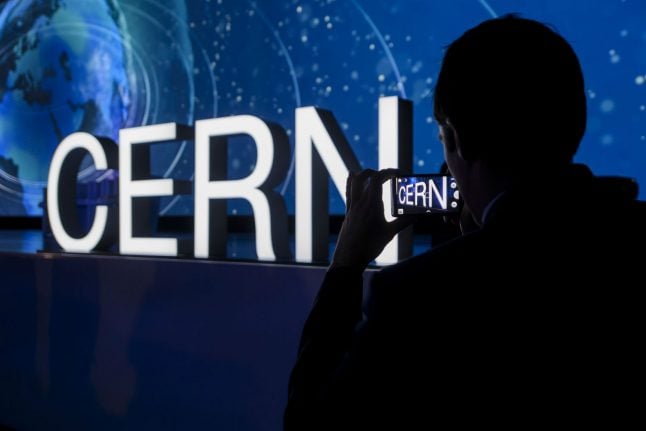“The new test began two or three days ago,” said Stavros Kasavenas, deputy head of France’s National Institute for Nuclear Physics and Particle Physics, also called the IN2P3.
“The criticism is that the results we had were a statistical quirk. The test should help (us) address this,” he told AFP.
On September 23rd, the team stunned particle physicists by saying they had measured neutrinos that travelled around six kilometres (3.75 miles) per second faster than the velocity of light, determined by Einstein to be the highest speed possible.
The neutrinos had been measured along a 732-kilometre (454-mile) trajectory between the European Centre for Nuclear Research (CERN) in Switzerland and a laboratory in Italy.
Through a complex transformation, a few of the protons arrive at their destination as neutrinos, travelling through Earth’s crust.
The scientists at CERN and the Gran Sasso Laboratory in Italy scrutinised the results of the so-called Opera experiment for nearly six months before making the announcement.
They admitted they were flummoxed and put out the begging bowl for an explanation. The results have not been published in a peer-reviewed journal.
Since then, an open-access online physics review, Arxiv, has had scores of papers submitted to it.
Some point to perceived technical glitches, noting that only a minute flaw in measurement would have had the neutrinos busting the speed of light.
Kasavenas said CERN was making available a special form of proton beam until November 6th.
The idea is to assess a modified measurement technique.
If this works, the technique will be used in a bigger, “highly important” experiment that will be carried out in April, he said.
“The idea with the new beam is to have protons that are generated in packets lasting one or two nanoseconds with a gap between each packet of 500 nanoseconds,” he said.
“We will be able to measure the neutrinos one by one, but to do this we need a beam that is a hundred times less intense than the previous one.”



 Please whitelist us to continue reading.
Please whitelist us to continue reading.
Member comments